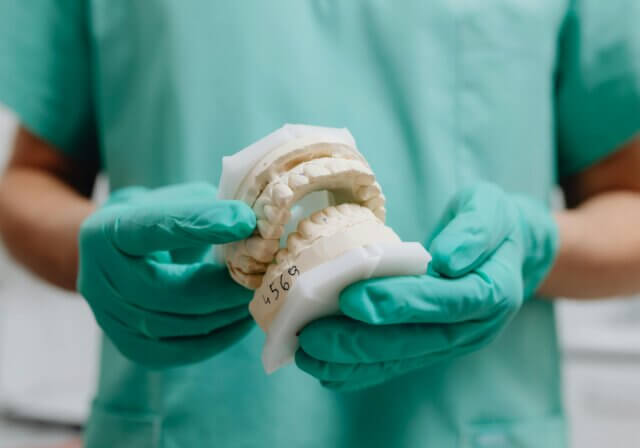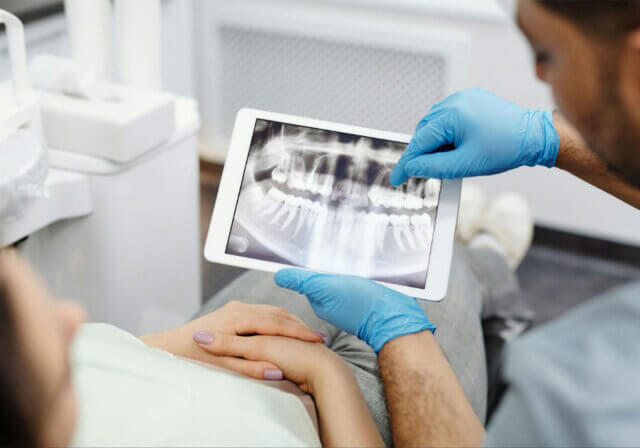Why Remove Wisdom (Teeth)? My often-sarcastic insight.
Is it really necessary? (Duh)
They don’t bother me. (If it ain’t broke don’t fix it)
They grew in just fine. (Nice try at taking my money)
There’s room for them. (Again nice try you greedy Dentist)
My last dentist said I didn’t need to. (He/she can’t possibly be wrong – again you must be greedy)
And, if I keep them, will they cause crowding? (Okay, you win, this one definitely hits the greedy button).
Without a doubt, these are the most common questions, concerns, and comments I receive on the topic of wisdom teeth removal. As is in many cases concerning the human body the answer is not always straightforward, and really comes down to YOU as an individual. Weird, we can’t just simply standardize everyone?
Why are we even in this situation in the first place? Why would biology provide us with 3 sets of molars and ask us to remove 1 set of them? The answer lies in human evolution and the phrase ‘Use Them or Lose Them.’
Many moons ago, several million actually, we required massive teeth to chew the harsh uncooked diet that nature reluctantly provided us to survive. Advances in diet and food preparation techniques allowed for softer diets, unless your mother cooks like mine. Over evolutionary years, jaw size has shrunk in response to this softening in diet and has resulted in a situation where 3rd molars, also known as wisdom teeth, don’t always fit.
So what does this mean to us?
Poor-fitting wisdom teeth, also known as impacted wisdom teeth, can result in the following:
• Pain
• Swelling
• Infection
• Gum disease
• Tooth decay
• And even cysts and tumors.
When any of the above conditions exist, removal is the obvious choice. However, it is less obvious when they grow in without any drastic complications. Some questions that may arise are “What about cases in which wisdom teeth fully erupt in the correct position?” or “What if they can be cleaned properly as part of daily hygiene practices, and therefore can remain a healthy part of dentition?” In some cases, wisdom teeth are fine to remain in. The real question is should we proactively remove them to prevent complications from happening in the future?
The answer to this is hardly clear, as we can’t always predict the future. A guiding factor in this decision is age. Between 15-25 years old, the mandible is relatively soft and wisdom teeth removal is easy, uneventful, and has a low risk of complications. As we age the density of the jaw increases, resulting in a more challenging removal. This is associated with a higher morbidity rate and higher risk of complications, one example being that 0.35- 8.4 percent of patients experience permanent nerve damage and numbness.
To clean or not clean, that is the question. Or in other words, can you clean, or do you clean? The percentage of people that brush their teeth twice a day for two minutes at a time, floss daily, and visit their dentist twice a year for checkups and cleanings… well let me just say it is quite an elite group. In fact, the odds that you make this dental royalty group puts you at the same odds as getting struck by lightning. Does that mean that if you’re not “dental royalty” you’re going to have problems? Not necessarily. Let me be honest, it simply is not always a fair world. Dental diseases are often described as disease of susceptibility, not neglect. What this means is that some people will do just fine ignoring their dentist’s recommendations and will cruise through life with a relatively boring dental history. Some on the other hand will be dental advocates, fighting for their dental rights, and simply find themselves sitting in a dental chair more often than a hairdresser’s chair. In my opinion, dental diseases are a combination of susceptibility and neglect, with internal and external factors constantly tipping the scale in an epic battle of playground see-saw.
So, I decide to keep them, does that mean I’m doomed? Is dental death inevitable? No, not necessarily, you’ll likely be fine, or not, I can’t predict the future. You might just plug along through life easily reaching the backside of your third molars with your toothbrush, delicately flossing your wisdom teeth while tickling your tonsils at the same time, and gently pass away in your sleep at the age of 100 with all your dentition intact, the only human appendage that is incapable of regenerating, pleasantly satisfied with yourself that you defied the odds and kept those pesky wisdom teeth.
Or suddenly, you’ll develop pain… or not-so-suddenly. Pain is often the end of a very long destructive process, and it is an evolutionary way of telling you to get your ass in gear and do something about it. If this occurs in your 30s, 40s, 50s, or so on, be prepared for a tougher recovery, higher incidence of complications, and potentially not having your mom around to look after you, or your parent’s insurance plan to cover the bill.
And NO you don’t lose wisdom. If I had a dollar for every time a patient cracked a joke about this, I wouldn’t have to be writing this blog. Third molars historically received this entitled name as a result of developing or erupting at a more mature age, an age in which people are ‘wiser.’ Yes, it’s a stretch but I’m not responsible for this weak correlation.
Do wisdom teeth cause crowding? No, they do not. The current literature does not support this. We can’t blame everything on wisdom teeth.
Can wisdom teeth wreck other teeth? Heck ya, we see it all the time. Incorrect alignment and even correct alignment can result in bacterial collection between 2nd and 3rd molars, which can lead to decay, gum disease, and periodontal disease.
So, at this point, I’ve either convinced you or you’re a life-long skeptic. Another common question is: why extract all four wisdom teeth at once? Simply put, one surgery means one recovery, which means one chance for complications such as infection. Why go through the same surgery 4 times? It’s simple math and probability.
Next question I get: “Do I need to be sedated? I’m not nervous. My friend just had theirs out without sedation.”
The answer: No, but yes.
When I began removing wisdom teeth 12 years ago fresh out of dental school, I used to give the patient’s the option. ‘Patient-centered care’ was what I advocated for and what I thought I was accomplishing. However, as I became more experienced, I realized the sedation element was for both the doctor as well as the patient. I get nervous too… JK. Sedation allows the doctors to control the surgical setting as much as possible so we can minimize and control complications, and safely perform the surgery. I wonder why pilots sit in a cockpit. Why can’t they sit back in economy and chit-chat with Gran about the weather as they land the plane? To answer this question, some might remove wisdom teeth without sedation, however, my standard of care consists of doing whatever it takes to minimize the risk of complications. This to me is ‘Patient Centered Care.’
When I began removing wisdom teeth 12 years ago fresh out of dental school, I used to give the patient’s the option. ‘Patient-centered care’ was what I advocated for and what I thought I was accomplishing. However, as I became more experienced, I realized the sedation element was for both the doctor as well as the patient. I get nervous too… JK. Sedation allows the doctors to control the surgical setting as much as possible so we can minimize and control complications, and safely perform the surgery. I wonder why pilots sit in a cockpit. Why can’t they sit back in economy and chit-chat with Gran about the weather as they land the plane? To answer this question, some might remove wisdom teeth without sedation, however, my standard of care consists of doing whatever it takes to minimize the risk of complications. This to me is ‘Patient Centered Care.’
If it is not apparent already, it is my humble and professional opinion that you would be doing yourself a huge favour to get those potentially troublesome molars removed as soon as possible. This is as early as 15 and ideally before the age of 30 when the human body has the ability to recover. As you head North of 30, the decision becomes less clear, and the benefits might just not outweigh the risks.
To wrap this up, my team and I will help guide you in making the decision that is best for you based on your specific situation and risk factors. The decision is yours.



